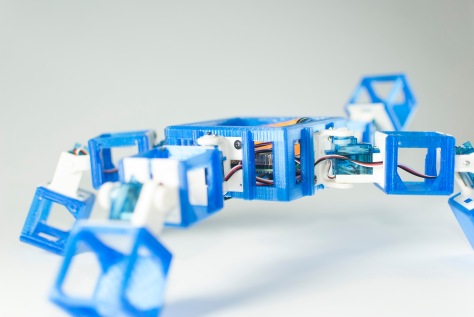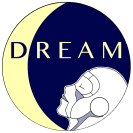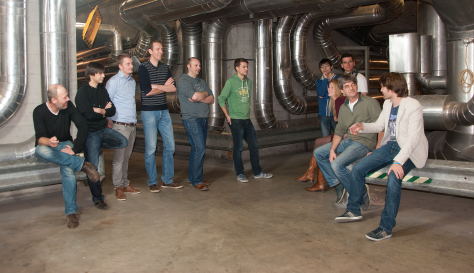EvoROBOT 2017
Amsterdam, The Netherlands, 19 – 21 April 2017
Call for Papers
Evolutionary Computation in Robotics
The EvoROBOT track is part of EvoApplications, the European Conference on the Applications of Evolutionary Computation, to be held in Amsterdam, The Netherlands.
Amsterdam is famous for its central role in European history, its tolerant character, and its extraordinary beauty . Attractions range from the Rijksmuseum and the house of Anne Frank to the Bloemenmarkt (floating flower market), the red light district, the cafés, and the world-class nightlife. The conference venue is centrally located.
The EvoROBOT track focusses on evolutionary robotics: the application of evolutionary computation techniques to automatically design the controllers and/or hardware of autonomous robots, real or simulated. This is by nature a multi-faceted field that combines approaches from other fields such as neuro-evolution, evolutionary design, artificial life, robotics, et cetera.
We invite high quality contributions dealing with state-of-the-art research in the area of evolutionary robotics.
Topics include but are not limited to:
- Evolution of (neural or otherwise) robot controllers;
- Evolution of modular robot morphology;
- Hardware/morphology and controller co-evolution;
- Open-ended evolution in robotics;
- Robotic evolutionary Artificial Life;
- Evolutionary self-assembly and self-replication;
- Evolution, development and learning;
- Evolutionary and co-evolutionary approaches.
Important Dates
Submission Deadline: 1 November 2016
Notification: 9 January 2017
Camera-ready: 25 January 2017
EvoStar dates: 19 – 21 April 2017
Publication Details
Accepted papers will appear in the proceedings of EvoStar, published in a volume of the Springer Lecture Notes in Computer Science, which will be available at the Conference.
Best Paper Award
 Frontiers in Robotics and AI is offering the best paper award at the upcoming EvoROBOT track. The Evolutionary Robotics specialty grants the winner afull waiver of the publication fee for the submission of an extended version of the work presented at EvoROBOT in Amsterdam.
Frontiers in Robotics and AI is offering the best paper award at the upcoming EvoROBOT track. The Evolutionary Robotics specialty grants the winner afull waiver of the publication fee for the submission of an extended version of the work presented at EvoROBOT in Amsterdam.
Naturally, the final decision to publish the extended version will be made adhering to the Frontiers policies of originality and review.
Submission Details
Submissions must be novel and original. Submissions will be peer
reviewed by at least three members of the program committee and authors
of accepted papers are required to address the reviewer’s comments to
produce a camera-ready version of their manuscripts if accepted. At
least one author of each accepted paper must register for the conference
and attend the conference to present their work.
The reviewing process will be double-blind and any information that may
identify the authors should be removed from the initial submission.
Please submit your contribution to EvoROBOT in Springer LNCS format. The
page limit is 16 pages.
Track Chairs
Evert Haasdijk
Jacqueline Heinerman
Further Information
Visit http://www.evostar.org or join the EVOstar group on LinkedIn for
more details and updates.




